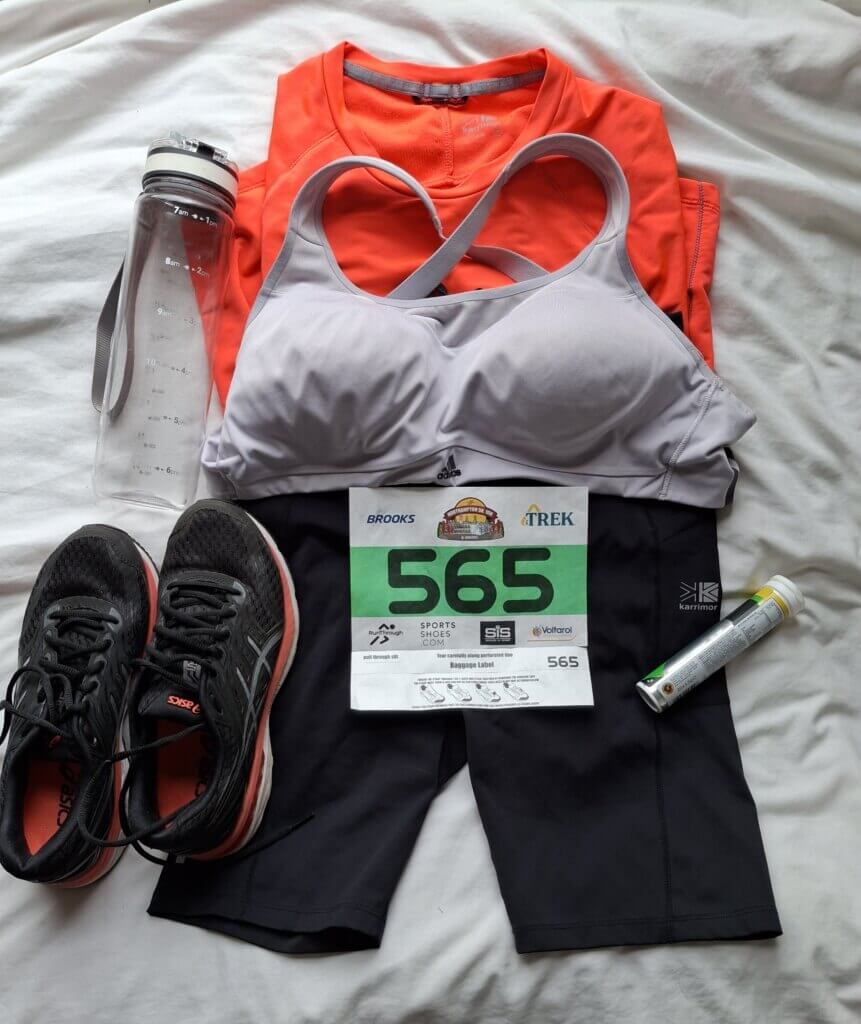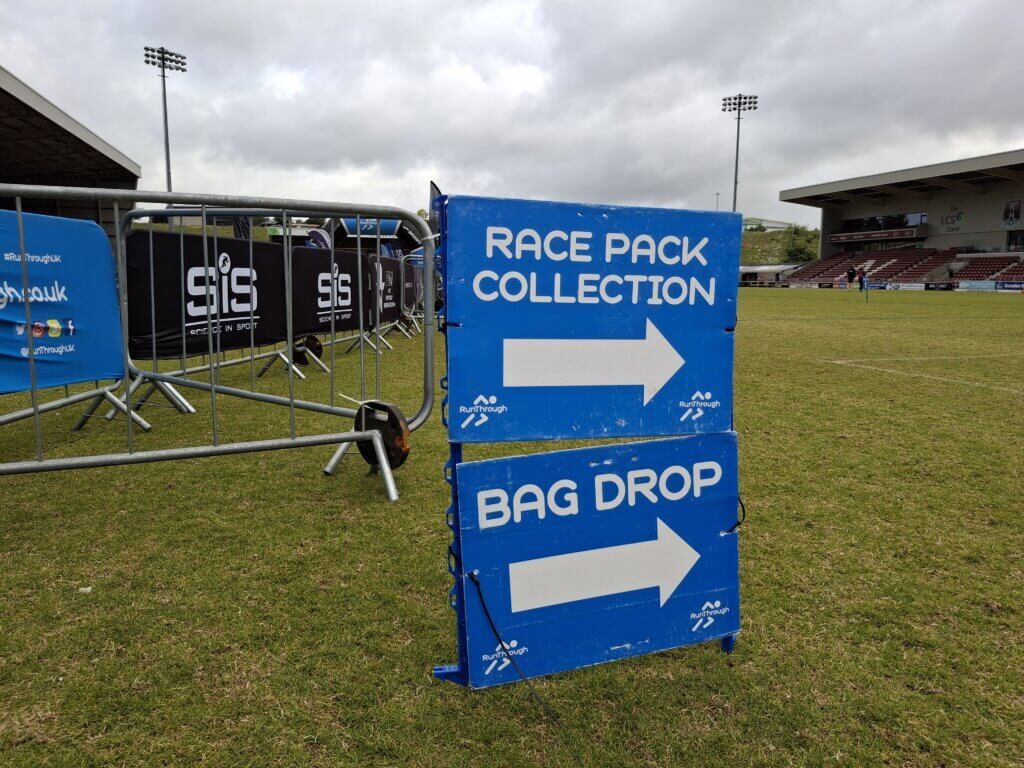
I was gifted some items from adidas for the purposes of this post. All words and opinions are my own.
So you’ve entered your first running event (I’m not calling them races as, let’s face it, most of us are only racing ourselves) and while it seemed like a good idea at the time, the reality is now dawning on you.
There’s a lot to think about and doubts are starting to creep in, but fear not, here are a few tips to help your first event go as smoothly as possible.
The day before
You’ve trained for this running event, and you’re well prepared so you don’t need to panic as the big day draws near. This last week (or longer if you’re doing a half or marathon) you should have tapered your runs so you don’t overdo it and are fresh and ready for race day.
The day before should all be about staying calm and relaxed, staying hydrated and fueling up ready for the big day. I don’t tend to eat anything too different from normal, but will have a carb heavy evening meal. Something simple like pasta with chicken or fish is ideal. I stay away from creamy sauces and anything too rich or heavy that will be hard to digest.
Last thing before getting an early night, I will make sure all my kit is ready for the morning and I’ll read the race instructions again just to make sure I know where I’m going and what the set up is on race day.
Kit List
How much you take depends on a lot of factors, i.e how you are getting there, how far you need to travel, the weather, the length of running event to name a few.

I personally prefer to travel as light as possible and keep things in my car. I then just need to carry my car key and my phone in my pocket while I’m running. If you’re not travelling by car and don’t have anyone to help, there is usually a bag drop of some description. There is sometimes a small charge for this and bear in mind that you will need to factor in extra time for dropping off/collecting your things.
On the day
My top tip for raceday is to not do anything different. Now is not the time to be trying new food/snacks or breaking in new kit. Stick to what you know works: you don’t want to be dealing with a queasy stomach or distracted by running kit that rubs or is uncomfortable. This is especially true of your footwear, stick to trainers that you have worn in.
Breakfast is usually something simple and, as I said above, something that I have all the time, for example porridge and banana and a cup of tea.
I personally won’t drink loads and loads right before the event, maybe just a small bottle (unless the weather is very warm), as I don’t want to spend my prep time queueing for the loos. I’ll make sure that the day before I take on a lot of water and I’ll drink during the run if I need it. I will also have a big bottle of water ready at the finish line, more than likely with a couple of electrolyte tablets in it to make sure I properly rehydrate.

Make sure you have read all the pre race information and know your travel arrangements, timings and where/when to collect your race number (and don’t forget your safety pins!). Sometimes you can do this the day before, or if not you usually need to make sure you arrive in plenty of time before the race so you can pick up your number and chip etc (if applicable).
Running
If you’re not used to running with other people, it can be a bit of a shock at first, especially if it’s a busy event. The start can be especially tricky as there are usually lots of runners in a small space and everyone is jostling for position. It can be hard to know where to place yourself at the start line. If there are pacers, it is a lot easier as you can position yourself close by the time you are looking to hit. If not, I sometimes also look at the previous year’s results and see roughly where I would be in the field. As a rough guide I’m around a 60 min 10k runner, so am usually around two thirds of the way through the field.
If you’re not used to running with other people, joining a local parkrun is a good way to get some race prep under your belt. These are free timed 5k races held every Saturday morning across the country.
It is very easy to get swept up in the excitement, but try to focus on what you are doing and stick to your plan. You are likely to be a bit nervous and your adrenaline will be flowing, so try to stay calm and don’t start off too fast. Don’t worry if you do start a bit too cautiously as you can always make the time up, but it’s a lot harder to recover if you go out too hard.

You’ve done all the hard work in training for the event so remember to savour the experience! There’ll be marshalls and spectators cheering you on and there is usually a great atmosphere at running events. I used to be a bit intimidated, but have actually found them to be really welcoming and friendly.
Recovery
Once your run is done, make sure you refuel and hydrate properly. A good cool down and stretch will keep any soreness to a minimum. If the weather is on the cooler side, a hoodie or tracksuit is a good idea to stop you getting chilly, as you soon get cold once you have stopped moving.
It’s a good idea to take it easy for a day or two after, especially if you’ve pushed yourself harder than you’re used to. Some gentle exercise, such as a very easy run, some yoga or a swim are all good ways to help your recovery. Just do as much as feels comfortable.
So now you know you can do it, it’s time to pick your next challenge and start training all over again!
Top Tips:
- Read and reread all the pre race information that you will get sent
- Take note of the rules, i.e cut off times, headphone rules etc
- Don’t forget safety pins to attach your number
- Take plenty of post race snacks and water
- Warm up and cool down properly
- Don’t set off too fast
- Have fun!